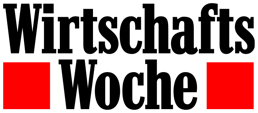Field help:
Have you stopped being self-employed and made a capital gain?
Select "yes" if you have stopped being self-employed and have made a profit from the sale.
What is this about?
If you have stopped being self-employed and have sold assets or company shares in the process, you may have incurred a so-called capital gain. All capital gains are entered in the Form S, regardless of whether they are partially tax-free or fully taxable.
What is a capital gain?
A capital gain is the profit that arises when business assets (e.g. company shares, machinery, real estate) are sold at the end of a period of self-employment and the sales proceeds exceed the original acquisition or production costs.
Under certain conditions, you can apply a tax allowance in accordance with sect. 16, para. 4 of the Income Tax Act (EStG) to this capital gain in order to reduce your tax burden. This tax allowance is intended primarily for older taxpayers who cease to be self-employed after many years of working as such.
When should you provide information here?
- When you have stopped working as a self-employed person.
- If you have made a profit by selling business assets.
Where do you get the information from?
You can find the amount of the capital gain in your sales documents or, if required, in a profit calculation that you prepared when you stopped working as a self-employed person.
If necessary, please consult a tax advisor or lawyer in your area for tax advice.

